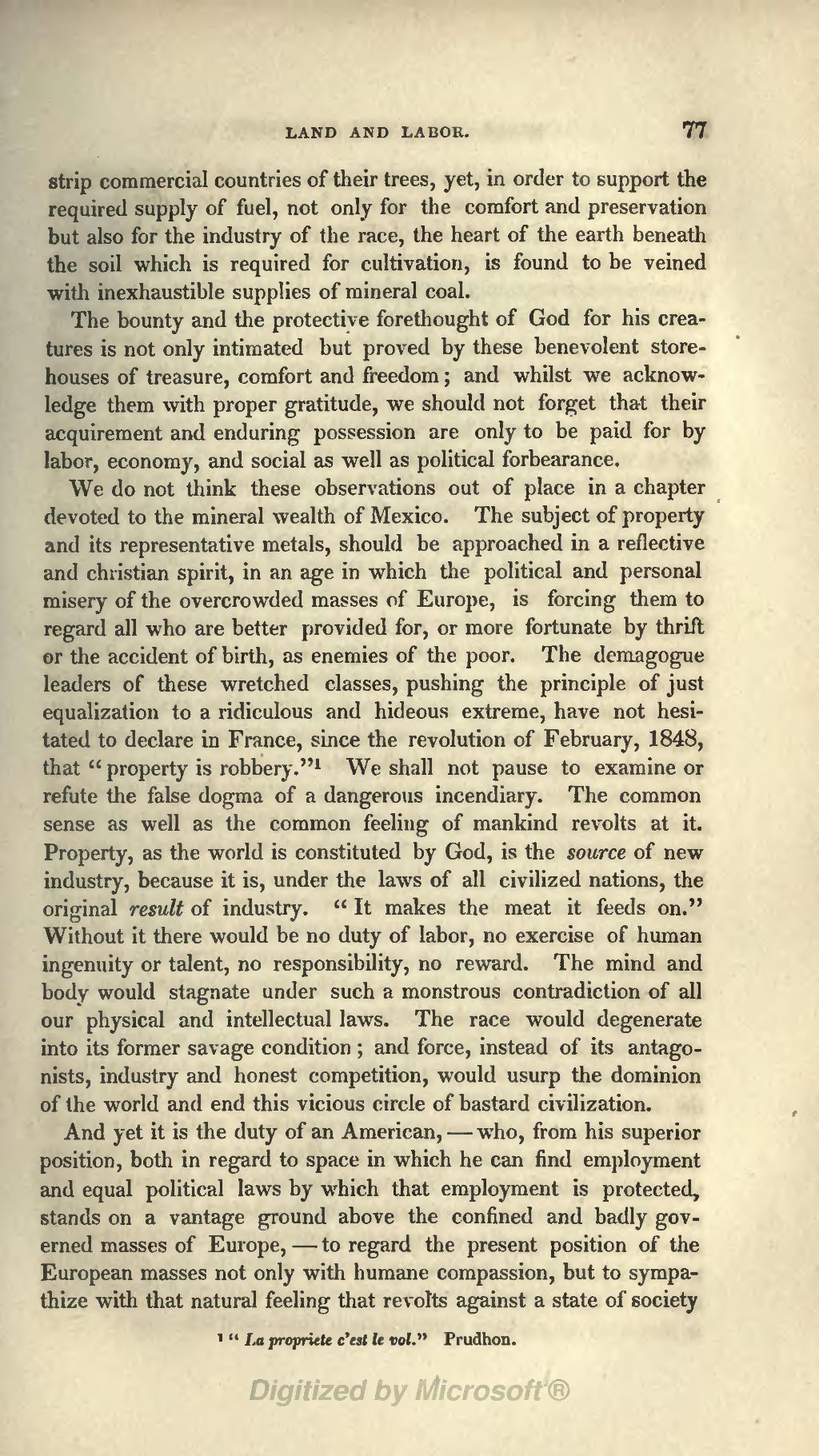strip commercial countries of their trees, yet, in order to support the required supply of fuel, not only for the comfort and preservation but also for the industry of the race, the heart of the earth beneath the soil which is required for cultivation, is found to be veined with inexhaustible supplies of mineral coal.
The bounty and the protective forethought of God for his creatures is not only intimated but proved by these benevolent storehouses of treasure, comfort and freedom; and whilst we acknowledge them with proper gratitude, we should not forget that their acquirement and enduring possession are only to be paid for by labor, economy, and social as well as political forbearance.
We do not think these observations out of place in a chapter devoted to the mineral wealth of Mexico. The subject of property and its representative metals, should be approached in a reflective and christian spirit, in an age in which the political and personal misery of the overcrowded masses of Europe, is forcing them to regard all who are better provided for, or more fortunate by thrift or the accident of birth, as enemies of the poor. The demagogue leaders of these wretched classes, pushing the principle of just equalization to a ridiculous and hideous extreme, have not hesitated to declare in France, since the revolution of February, 1848, that "property is robbery."[1] We shall not pause to examine or refute the false dogma of a dangerous incendiary. The common sense as well as the common feeling of mankind revolts at it. Property, as the world is constituted by God, is the source of new industry, because it is, under the laws of all civilized nations, the original result of industry. "It makes the meat it feeds on." Without it there would be no duty of labor, no exercise of human ingenuity or talent, no responsibility, no reward. The mind and body would stagnate under such a monstrous contradiction of all our physical and intellectual laws. The race would degenerate into its former savage condition; and force, instead of its antagonists, industry and honest competition, would usurp the dominion of the world and end this vicious circle of bastard civilization.
And yet it is the duty of an American,—who, from his superior position, both in regard to space in which he can find employment and equal political laws by which that employment is protected, stands on a vantage ground above the confined and badly governed masses of Europe,—to regard the present position of the European masses not only with humane compassion, but to sympathize with that natural feeling that revolts against a state of society
- ↑ ”La propriete c'est le vol," Prudhon.
